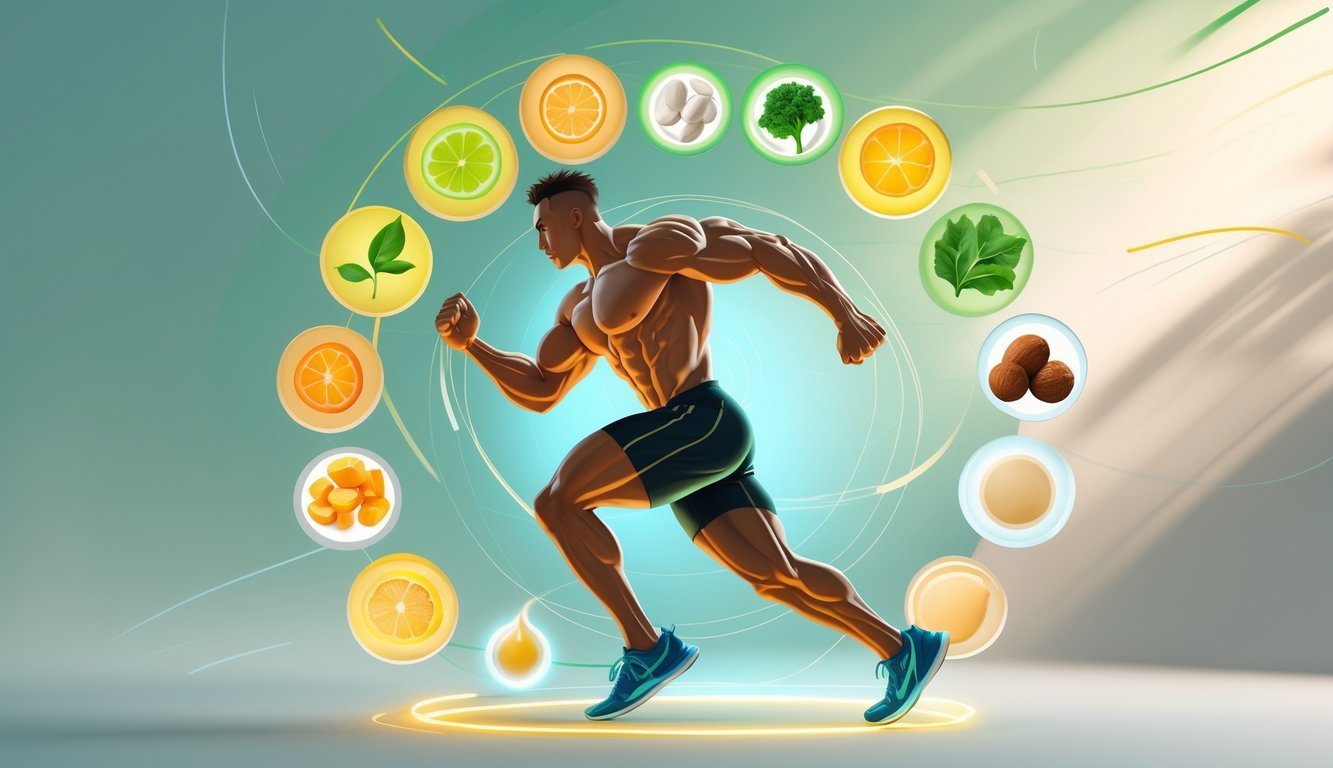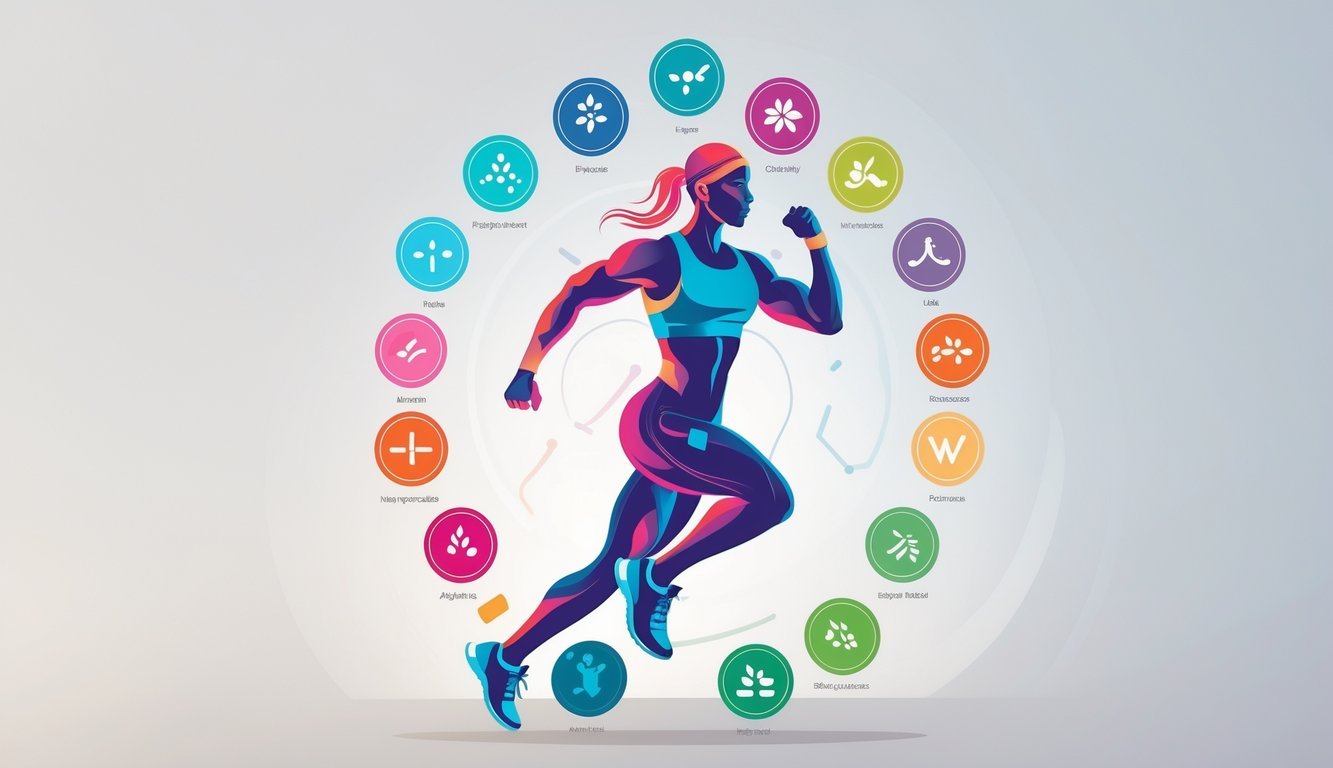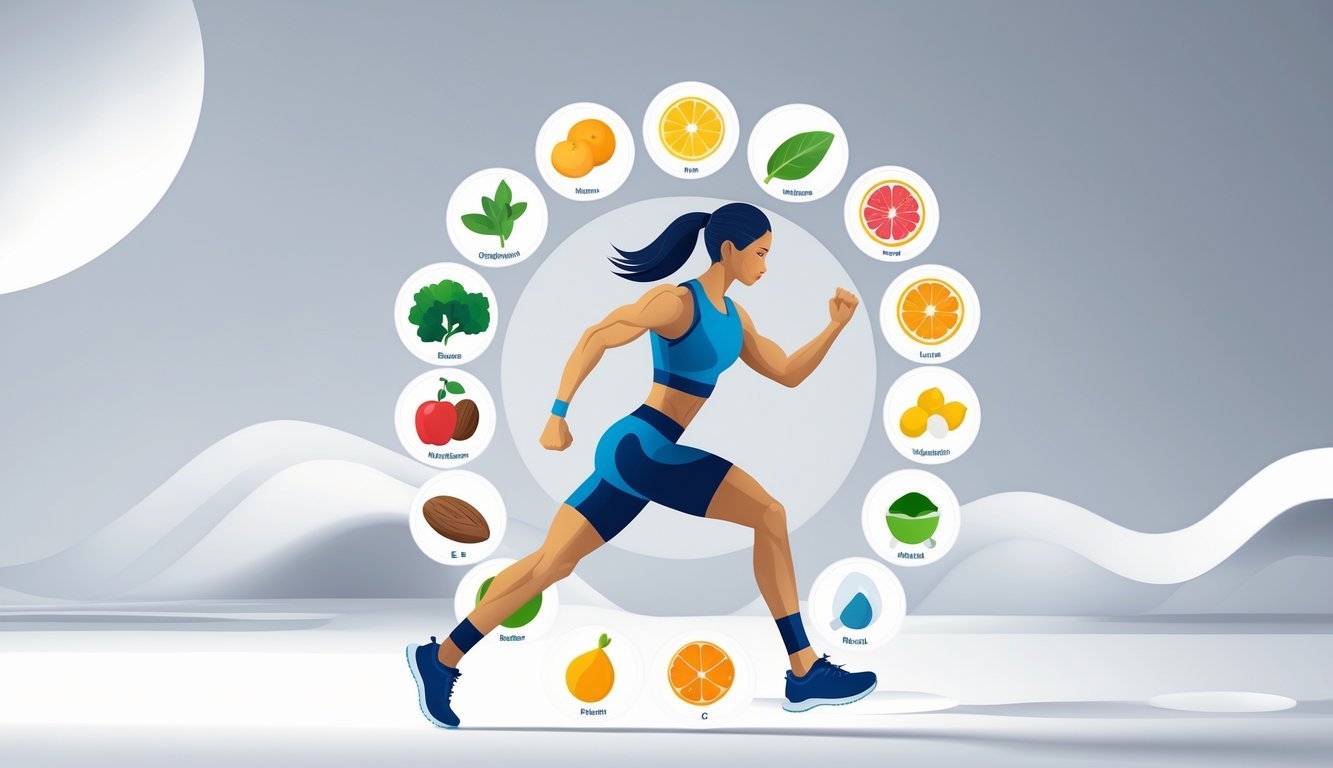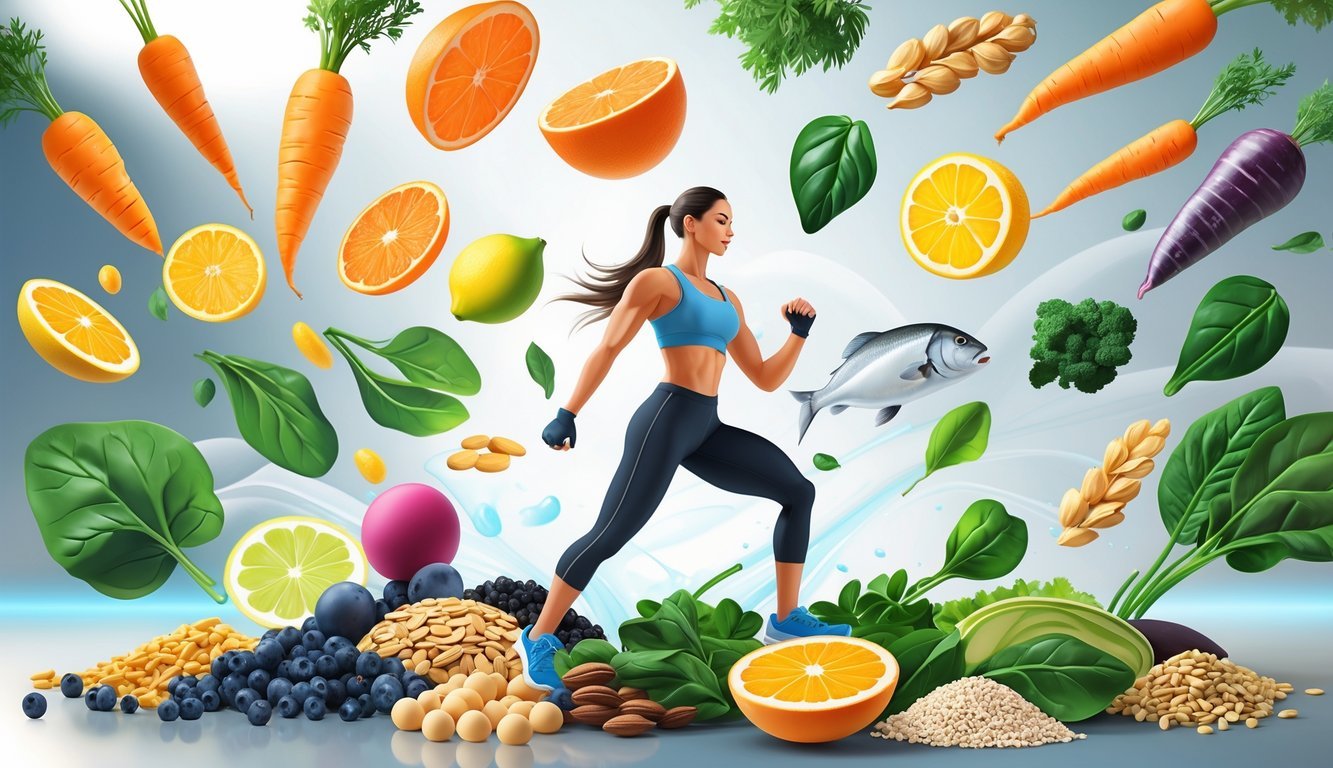PsychNewsDaily Publishers
100 Summit Drive
Burlington, MA, 01803
Telephone: (320) 349-2484
PsychNewsDaily Publishers
100 Summit Drive
Burlington, MA, 01803
Telephone: (320) 349-2484
Essential vitamins and minerals enhance workout performance, improve energy levels, support muscle function, and accelerate recovery, helping athletes achieve their fitness goals effectively.

If you want to get more out of your workouts, the right vitamins and minerals really matter.
These 11 essential nutrients can help your body perform better, speed up recovery, and keep your energy steady while you exercise. Without them, your fitness goals might just stall or feel out of reach.
Your body uses vitamins like B12 and C to turn food into energy. Minerals such as iron and magnesium help your muscles work and keep fatigue at bay.
If you know which ones to focus on, you’ll probably notice a real difference in how you feel and perform during physical activity.
Getting enough of these nutrients keeps your health solid and boosts your ability to train harder, maybe even longer.
Whether you’re a beginner or aiming for your best, understanding these vitamins and minerals is a smart move toward better fitness.

Getting the right vitamins can really change how you feel during workouts. They also affect how fast you bounce back afterward.
Some key vitamins help your body turn food into energy, keep your muscles strong, and protect your cells from exercise-related damage.
B-complex vitamins—like thiamine (B1), riboflavin (B2), niacin (B3), B6, and B12—play a big part in producing energy. They help turn carbs, fats, and proteins into fuel for your muscles.
Take niacin, for instance—it helps blood flow and boosts muscle performance, so you get more energy during your workouts.
Vitamin B12 helps make healthy red blood cells, which carry oxygen to your muscles and keep them working.
B vitamins also support recovery. They help your nervous system, reduce fatigue, and keep your energy levels steady so you can bounce back faster after those tough sessions.
Vitamin D does more than just help your bones. It lets your muscles contract and relax, which affects your strength and overall performance.
When you have good vitamin D levels, your muscles seem to work better, and you might notice less soreness after exercise.
This vitamin also supports your immune system, so you’re less likely to get sick and miss workouts.
Your skin makes vitamin D from sunlight, but you can also get it from foods like fatty fish, eggs, and fortified milk.
If you don’t get enough, your muscles might feel weak, and you could find recovery takes longer.
Vitamin C acts as a powerful antioxidant. It protects your body from the oxidative stress that comes with exercise.
This means it helps reduce cell damage, which can lead to fatigue and slower recovery.
You need vitamin C to make collagen, which keeps your muscles, tendons, and joints healthy. That means better overall fitness and fewer injuries.
Fruits and veggies like oranges, strawberries, and bell peppers pack plenty of vitamin C.
Keeping your intake steady helps your immune system so you can train consistently and avoid getting sick.

Minerals play a huge part in how your body creates energy, builds muscle, and recovers after a workout.
Getting enough of the right minerals keeps you strong, improves energy use, and helps you recover faster.
Magnesium is a macromineral that helps your muscles contract and relax the way they should. It supports the nerve signals that tell your muscles when to move, which is vital when you’re exercising.
Magnesium also helps turn carbs and fats into energy your body can use.
You’ll find magnesium in foods like nuts, leafy greens, and whole grains.
If you don’t get enough, you might feel weak or tired. Some people use dietary supplements to keep their magnesium levels up, especially if they work out a lot.
Having enough magnesium protects your muscles from cramps and helps maintain your muscle strength during tough sessions.
Selenium is a trace element that acts as an antioxidant. It protects your cells from damage, especially when you push yourself hard in workouts.
Selenium also supports your immune system and helps your body recover faster.
You only need a little, but it’s important. You get selenium from foods like Brazil nuts, seafood, and eggs.
Other trace elements work alongside selenium to support recovery and keep your body balanced.
Keeping these minerals in check helps with healthy energy metabolism and can cut down on muscle soreness.

The right vitamins and minerals help your muscles grow, speed up recovery, and improve your stamina.
Different people have different needs—female athletes, for example, or anyone looking to boost endurance.
You can find the best supplements and learn why athletes rely on them.
You’ll want to focus on B-complex, C, and D vitamins. They help turn food into energy and support muscle repair.
Minerals like calcium, potassium, and iron are also important for muscle function and oxygen delivery.
Female athletes often need extra iron to avoid fatigue. Calcium and vitamin D are key for strong bones.
B vitamins help with energy and muscle health.
Supplements with iron, vitamin D, calcium, and B vitamins are popular.
Some athletes use vitamin C and E to reduce inflammation. Protein powders and electrolytes like potassium can help during long workouts.
Vitamins B and C help your body make energy and fight tiredness.
Iron helps deliver oxygen in your blood, which is crucial for lasting exercise. Vitamin D supports muscle strength and improves endurance.
Iron, calcium, vitamin D, B-complex, vitamin C, potassium, and magnesium are still top picks.
These nutrients help with energy, recovery, immune support, and muscle function.
Athletes often use supplements to boost energy or speed up recovery after tough workouts. Some reach for supplements to help prevent injuries, too.
Supplements can fill nutritional gaps when their diet falls short. They also help maintain electrolyte balance during intense exercise.